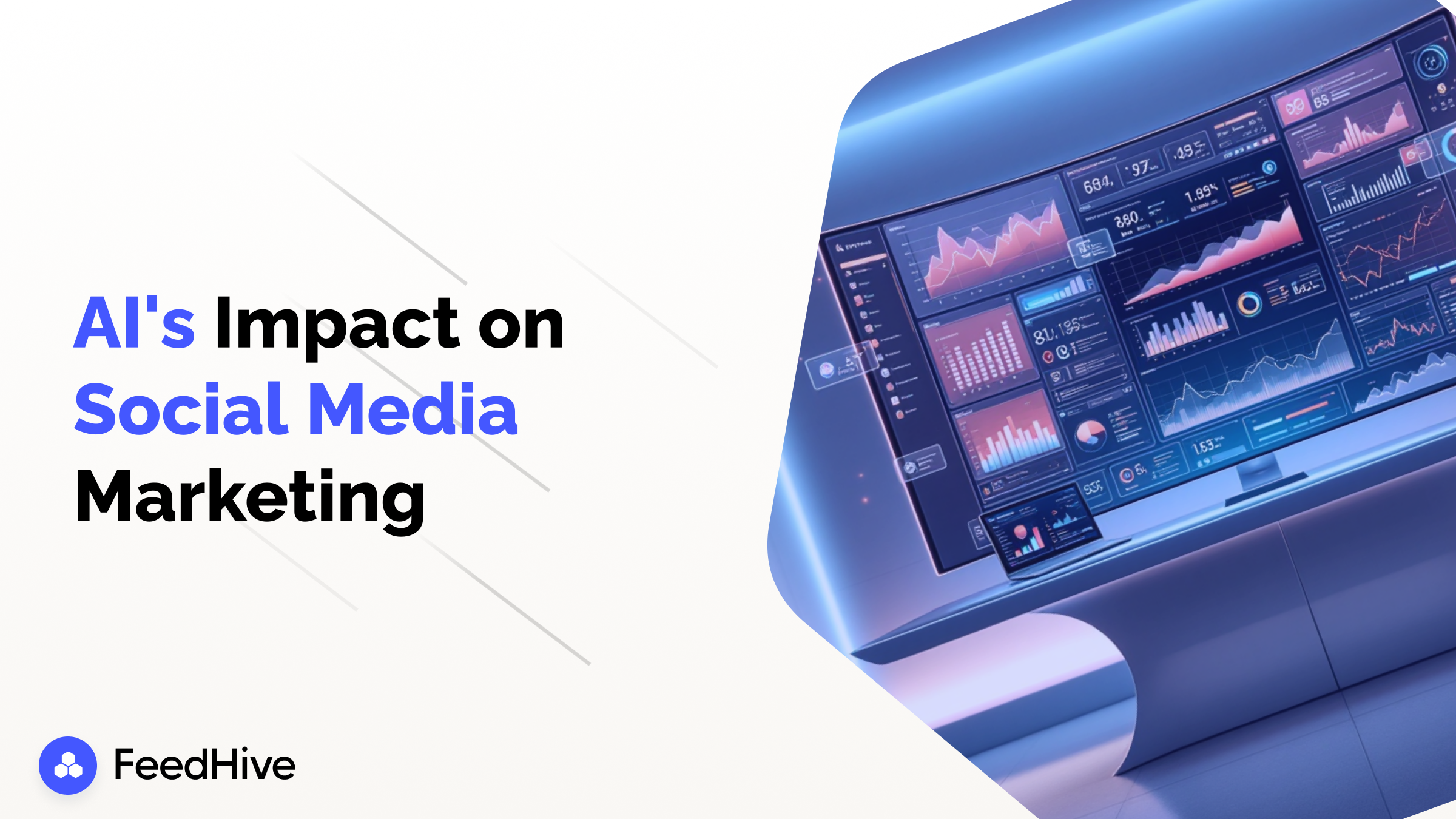
Artificial intelligence has become a transformative force in social media marketing, offering businesses unprecedented tools to engage with their audiences while simultaneously raising questions about ethics and authenticity. In this evolving landscape, companies must balance rapid innovation with responsible practices.
AI has steadily moved from a futuristic concept to a core element of modern-day marketing. In today's digital environment, marketers leverage AI to analyze data, optimize campaigns, and even generate creative content—all in real time. By integrating machine learning algorithms, predictive analytics, and natural language processing, AI reshapes how brands interact with their customers. This transformative approach not only allows for more tailored user experiences but also encourages deeper customer engagement, bridging the gap between technology and personalized marketing.
One of the most exciting developments in AI is its role in content creation and personalization. Companies such as Zalando are already capitalizing on this technology by drastically reducing the time required to produce compelling visual content. According to a Reuters report, Zalando managed to reduce image creation cycles from six to eight weeks to just three to four days, resulting in a 90% cost saving on production (Reuters). This accelerated process is a game changer for brands that need to keep pace with the rapid cycles of social media trends.
Simultaneously, AI-driven personalization ensures that content not only resonates with audiences but also speaks directly to their interests. By analyzing user behavior in real time, platforms can deliver customized content that improves engagement and conversion rates. For example, solutions described by El País highlight how AI makes it possible to lead marketing campaigns based on tailored data insights (El País). This blend of automated generation and targeted tweaks is redefining the creative process and allowing brands to maintain a dynamic connection with their audience.
AI technologies provide a range of opportunities that continue to reshape social media marketing. Here are some notable benefits:
These opportunities position AI as a powerful ally for marketers looking to refine their strategies and boost the effectiveness of their social media campaigns.
With great power comes great responsibility. Ethical considerations must be at the forefront as marketers deploy AI technologies. One major concern is data privacy. The constant collection and analysis of user data necessitate strict adherence to regulations like GDPR and CCPA to maintain trust and safeguard personal information (Sociallybuzz).
Another ethical issue involves the potential for AI to introduce biases and reinforce discriminatory practices. Since AI systems are only as fair as the data they are trained on, there is a significant risk that existing societal biases could be perpetuated. Regular audits, diverse data sets, and transparent algorithms are critical to mitigating these issues and ensuring fair outcomes.
While AI offers powerful tools for enhancing efficiency and engagement, there is a fine line between automation and authenticity. Over-reliance on AI-generated content can dilute a brand’s human touch and result in messages that feel impersonal. Maintaining authenticity means blending human creativity with AI efficiency—not replacing it.
To achieve this balance, marketers must adopt a strategy that leverages AI to handle repetitive tasks and data analysis while preserving the creative aspects of storytelling that resonate on a human level. The emphasis should be on using AI as a complementary tool rather than a complete substitute for human insight. This approach helps preserve the genuine connection that consumers seek from the brands they trust.
Despite its many advantages, AI is not without its challenges. A significant hurdle is ensuring robust data privacy and security. With the extensive amount of data AI requires, marketers run the risk of breaching trust if sensitive information is mishandled, highlighting the need for continual vigilance regarding legal and ethical standards (Sociallybuzz).
Furthermore, the deployment of AI in marketing can sometimes lead to unintended consequences like biased decision-making. These biases, embedded within the data or algorithm design, can result in skewed outcomes that may alienate parts of an audience. Additionally, an over-dependence on automation may lead to a loss of distinctive brand voice, thereby compromising overall authenticity.
Marketers must navigate these challenges by implementing strong governance frameworks, ongoing training of AI systems, and ensuring that human oversight is always part of the equation.
Looking ahead, the future of AI in social media marketing holds considerable promise. Advancements in machine learning and data analytics will continue to drive more refined, interactive, and immersive experiences for consumers. We can expect to see trends such as hyper-personalized content, predictive customer engagement, and advanced virtual assistants playing an even more significant role in shaping marketing strategies.
Businesses are also exploring the potential of integrating AI with other marketing tools. For instance, social media management platforms like FeedHive are beginning to harness AI to optimize posting schedules, analyze engagement metrics, and curate content that resonates with target audiences. These advancements will likely lead to more dynamic and efficient social media strategies that are both proactive and responsive.
The integration of AI in social media marketing has undeniably opened up new avenues for creativity, efficiency, and customer engagement. However, the rapid adoption of these technologies brings a set of ethical and practical challenges that businesses must carefully navigate. By combining the strengths of AI with the irreplaceable qualities of human creativity and oversight, marketers can harness the transformative power of AI without compromising authenticity or ethical standards.
In the end, the key to success lies in balancing innovation with responsibility—leveraging AI to drive growth while ensuring that the human element remains at the heart of every interaction.